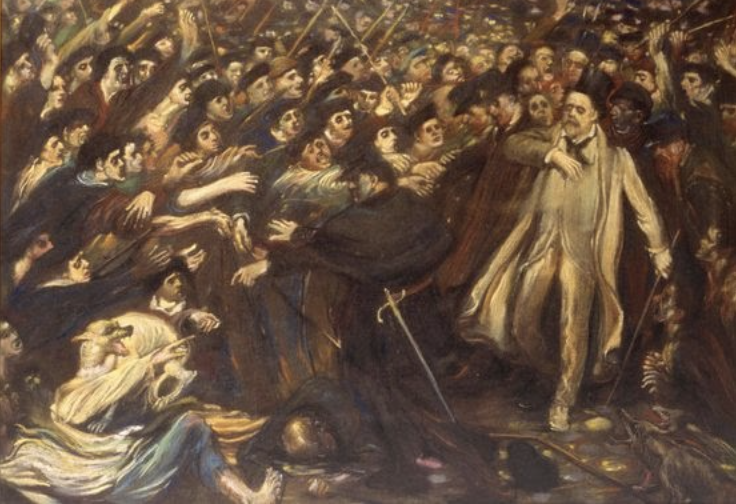“No arts; no letters; no society; and which is worst of all, continual fear and danger of violent death; and the life of man solitary, poor, nasty, brutish, and short.”― Thomas Hobbes, Leviathan
The blatant descriptions of the ‘state of nature’- hypothetical arrangement of existence without any laws or the state – by Hobbes subconsciously affect the functioning of the states to this day. It affects what they fear, how they function, and eventually how they choose to operate. As a result, quite a few states throughout the world become complicit in despicable methods to achieve ‘discipline’, the desperate need of which sprouts from the innate fear against straying away from the norm and the balance of power being disrupted. Such deep-rooted fears could be found within the situation at home as well, which enables it to undertake actions that would not deserve to be termed as honorable from any angle as far as its treatment of the citizens is considered.
It’s important to note that in the real world scenarios – particularly that of the domestic abductions – the Leviathan (a powerful monarch described by Hobbes who would exercise power and authority on behalf of every single person in the nation) wouldn’t necessarily need to be a human figure.
It could be anything that the citizens yield their power to or forgo (or are conceived to have forgone) their basic agencies in their favor. By the means of analogy, the implicit and unwritten code of conduct that guides the actions of different agencies and individuals, while carrying out abductions with impunity, could be termed as the Leviathan that’s expected to hold the most power at the end of the day. This Leviathan exercises the utmost power – to maintain ‘discipline’ – in the case of individuals that seem to lie outside the bounds of the law.
Such a subterranean code of conduct has the strength to go against even the sacred clauses of the constitution without ever earning any negative repercussions that might jeopardize its own existence. A Leviathan in Hobbes’ world similarly has its own way, regardless of the welfare of the people, the figure works to keep the different parts of the state together. In real-world scenarios, however, the need to cater to the well-being of the population can’t be acceptably forgotten, regardless of where sovereignty lies.
At this point, it would be extremely essential to note that the existence of a menace like enforced disappearance in a ‘democratic’ society – that clearly, as mentioned, goes against the constitutional spirit – does not merely pose a threat to a particular faction that suffers from the direct effects of it, but it does to the society as a whole. Carl Schmitt mentions something worth quoting:
“Sovereign is the one who decides on the exception.”
It’d be jarring to connect the dots here. A democratic state that’s theoretically ruled by and for the people that, in actuality, has a sovereign that’s entirely someone else. Not merely that, but also the fact that this ‘undercover’ sovereign fails to deliver the basic requirements the state was formed for. The protection of innate freedoms is unequivocally the right every human must exercise; however, there’s a clear disparity between the discourse and practice in this case. The ‘undercover’ sovereign does not allow the basic freedoms to prevail: freedom of speech, freedom of movement, freedom of association, etc.
Nevertheless, it’s done with impunity following the British lead in adopting the divide and rule measures. It’s important to understand that the ultimate power exists in certain hands that results in the collective loss for all and the tide would turn against anyone and everyone given the conflict of interest with the sovereign. Therefore, the issue of forced disappearances ought to be taken as a pressing issue by society as a whole.
The people lying at the periphery serve as the clearest mirror for society to gauge its true reflection through. The fundamental objective behind being a part of a particular state for the people happens to be the security and dignity that they expect to receive for their lives, those of their loved ones or other fellows and property; depriving the citizens of such rights and freedoms would sully the basic contract that the state has with the people; further, if the situation becomes ubiquitous it’d have a very strong tendency to taint the very integrity of the state.
For all these reasons, the action of forcefully abducting the citizens without any fair trial or other proceedings taints the very integrity of the state by making void the very fundamental purpose of it. It is analogous to the dark hypothetical societies that had been criticized by political analysts over the centuries. So, the actions are not merely philosophically despicable but also hold bleak implications for society as a whole. Therefore, it’d be important to conceive such happenings in a more aware manner and to raise our voices against them before they reach our very doorstep.
Maheen
Intern, Defence of Human Rights Pakistan

